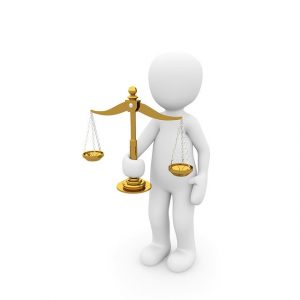Television shows centering around courtroom drama are incredibly popular today. People enjoy watching the excitement of lawyers revealing new evidence and the suspense of judges and juries giving their verdicts. Another popular feature of these shows is the unveiling of new witnesses who have crucial evidence or testimonies that change the course of the trial. While court proceedings usually do not play out the same way in real life as on TV, witnesses are still crucial to both criminal and civil cases. However, most people do not realize that there are actually three types of witnesses.

Expert Witnesses
Expert witnesses are people who did not witness the crime in question and who probably do not know the defendant or the plaintiff. Instead, they are experts in a field that is related to the case. For example, if a ship captain is accused of negligence towards his or her employees, then a lawyer would call a maritime expert witness such as Mitchell Stoller to learn more about a captain’s responsibility to his or her crew. One benefit of these witnesses is that they tend to be unbiased since they do not know the people or the circumstances of the case. Another is that they provide a new perspective on the issue thanks to their years of experience.
Lay Witnesses
Perhaps the most famous type of witness is the lay witness. Lay witnesses have seen events take place that are relevant to the case. These events may include the crime itself, or they may be circumstances surrounding the crime. For example, someone who saw the defendant steal a computer from a mall serves as a lay witness, describing his or her experiences. Such a witness is commonly called an eyewitness. On the other hand, if the defendant is accused of murder, the storekeeper who sold him or her suspicious supplies the day before could also testify as a lay witness.
Character Witnesses
Character witnesses are not experts on relevant subjects and they did not necessarily see the crime take place. However, they do know either the defendant or the plaintiff very well. During their testimonies, they describe the person’s personality and provide anecdotes that help the judge or jury reach a verdict. Common character witnesses include family members and friends, but anyone who knows the person in question well can fulfill this task. A character witness helps in cases where other evidence is lacking. If a person is accused of stealing and there is no eyewitness or recording of the incident, then a character witness could help the defendant by giving examples of his or her integrity.
Expert, lay and character witnesses all play key roles in trials. While some people may doubt their testimonies, all of them are required to swear to tell the truth before they testify. Furthermore, strict laws govern the bribery of or retaliation against witnesses. Although some witnesses do lie, the vast majority of them act ethically and help to resolve cases just as they do on courtroom TV shows.



